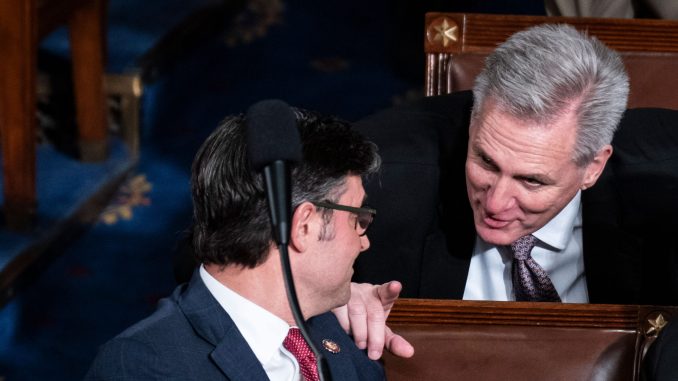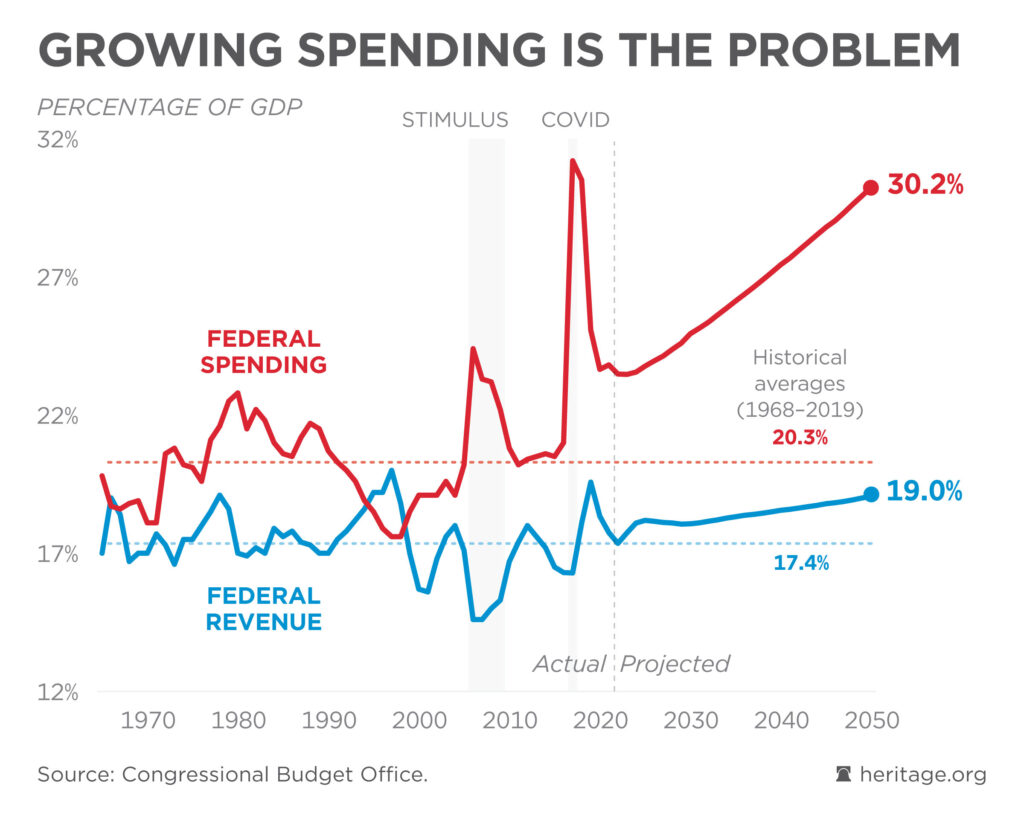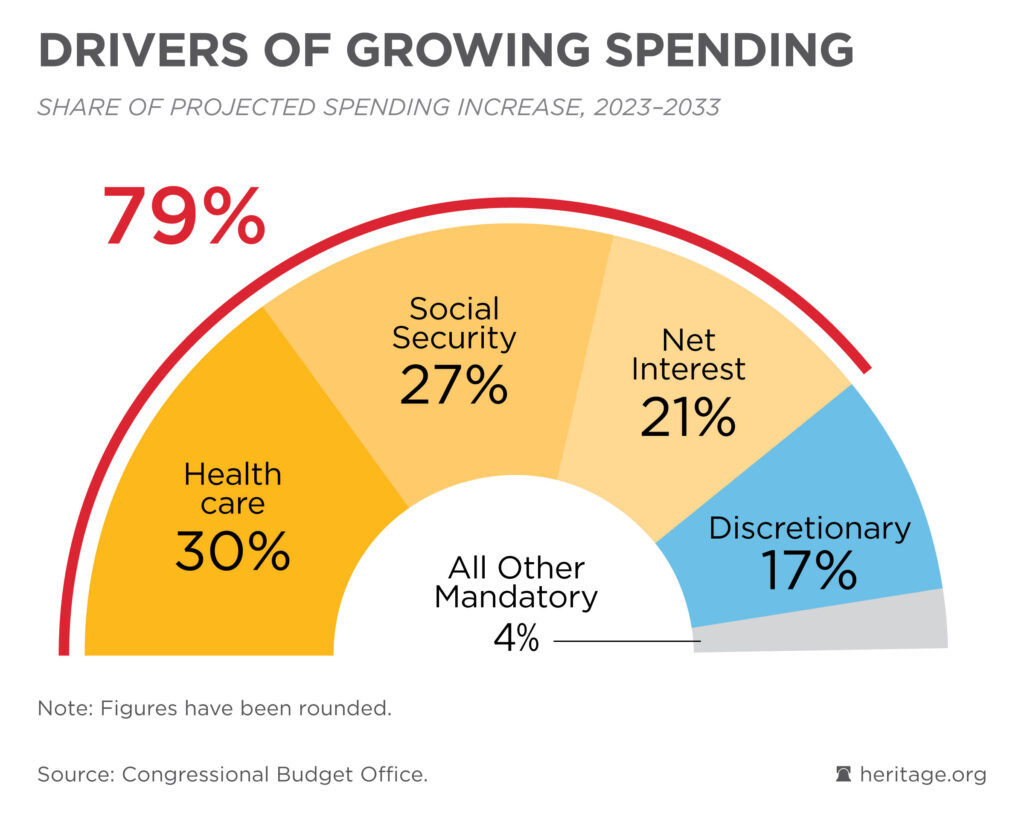
In May 2023, when then-Speaker of the House Kevin McCarthy negotiated a debt limit deal that included spending limits, the gross national debt stood at just under $31.5 trillion.
Conservatives in the House were deeply upset about the debt deal, which contained fraudulent gimmicks to get around the announced spending limits. Less than eight months later, the debt has skyrocketed to $34 trillion, or more than $100,000 for every man, woman, and child in the country.
Current House Speaker Mike Johnson, R-La., reopened spending negotiations with the White House. His goal was to reduce the amount of deficit spending, which has become a growing threat to the economy.
On Sunday, Johnson announced that the two sides reached a deal.
While not all of the details are known, some key facts have been revealed. Those include:
- Saving $16 billion by rescinding $6 billion in still-unspent COVID-19 funds and removing $10 billion in budget gimmicks.
However, many important aspects might not become clear until actual legislation is produced.
For example, Johnson claims potentially $14 billion in further reductions relative to the draft spending bills produced by the Senate, but Democrats suggest otherwise.
Similarly, fake “emergency” spending might skate through in some form.
More importantly, it appears that most of the taxpayer-funded dysfunction in the federal government will continue unabated. From wasteful earmarks to handouts for radicals in academia to white elephant high-speed rail projects, the budget deal will have little effect on the broken status quo.
Even if the deal makes as much progress as Johnson claims, it will be a minuscule drop in the bucket relative to the size of the nation’s fiscal challenge.

Federal spending is expected to grow much faster than both tax revenues and the economy in the years to come, even if we avoid a recession. Saving $30 billion would help, of course, but it would also not make a visible difference in the trajectory depicted in the chart above.
It won’t even undo the damage caused by the Biden administration’s shenanigans in 2023. While the size and scope of the federal government is almost beyond comprehension, the reason why spending is likely to skyrocket is driven by just three parts of the budget, none of which are touched by the deal.

The cost of paying interest on the national debt has gone through the roof due to both the meteoric rise of interest rates over the past year and the continual surge of deficit spending.
While it’s impossible to know where rates will go from here, credit markets are increasingly wary of giving Uncle Sam cheap credit.
On top of that, both Social Security and Medicare are rapidly heading towards bankruptcy due to unsustainable spending growth. What used to be a “future generations” problem is now a “next 10 years” problem, meaning that most current retirees (along with everyone else) are at risk of sharp benefit cuts unless Washington takes action.
It’s unclear how much more Johnson could have gotten in the negotiation. Not only are the Biden administration and all the Democrats in both the House and Senate in lockstep opposition to modest spending cuts, but centrist Republicans also flinch under the slightest pressure. (In the media’s backwards budget logic, members of Congress who reliably vote for spending increases are labeled “moderate,” while the handful of deficit hawks are called “extremists.”)
The problem isn’t Johnson. The problem is an irresponsible culture that has festered in the swamp for decades, treating America’s hard-earned money like a plaything and dodging hard choices at every opportunity. Only the American public can make Washington take its job seriously.
The last major spending reduction happened because of the tea party movement—and that anti-establishment sentiment is as strong as ever. If legislators realize that there are consequences to ignoring the national debt, they’ll start paying attention.
Have an opinion about this article? To sound off, please email letters@DailySignal.com, and we’ll consider publishing your edited remarks in our regular “We Hear You” feature. Remember to include the URL or headline of the article plus your name and town and/or state.
